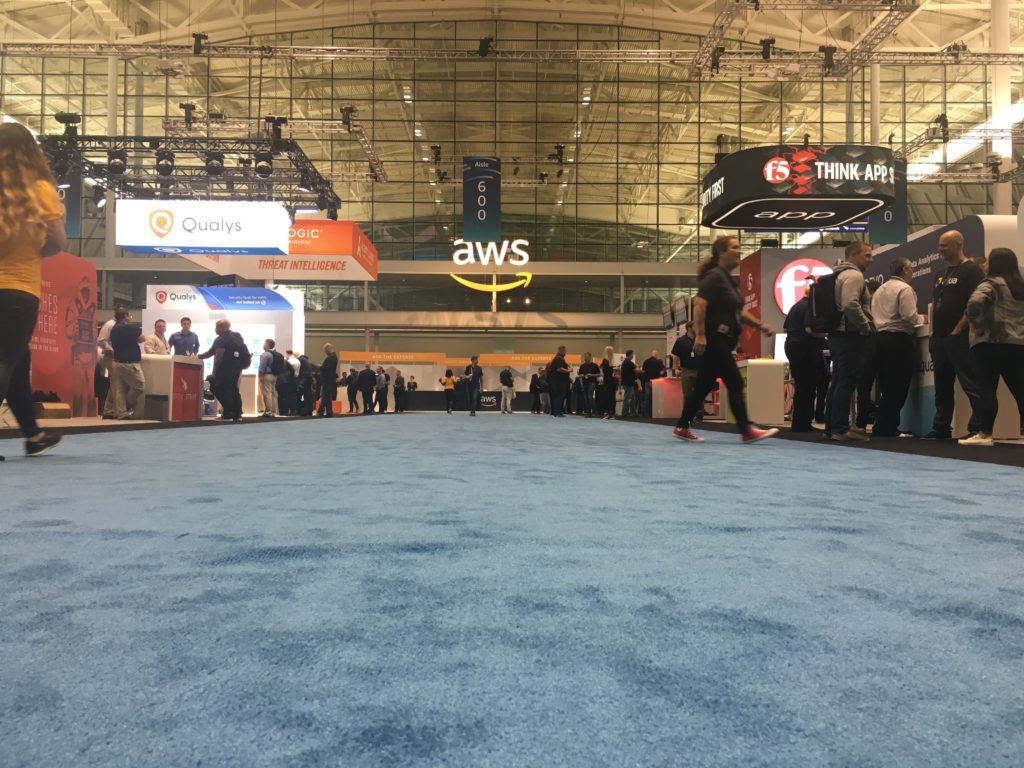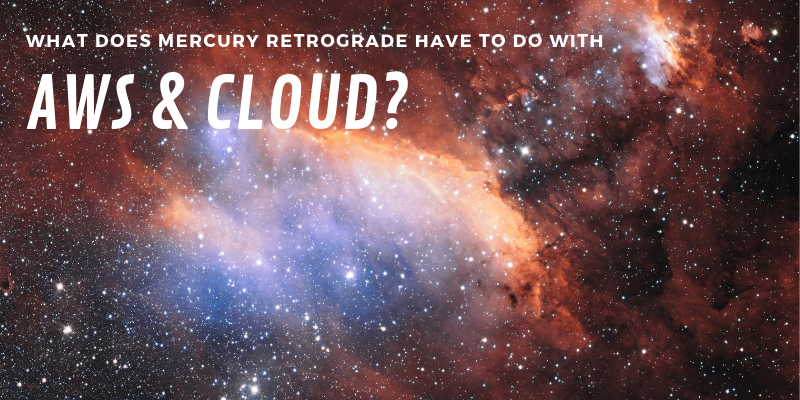In New York this Thursday I’ll be attending my third AWS Summit in that city. I’m not sure about you but for me, when an annual professional event approaches, I often reflect on how much I’ve matured professionally or in a particular role since the last event, and the one before that, etc. In 2017, I had just recently moved back to New Jersey from Israel, and at the same time had begun transitioning from being responsible for the company’s editorial team to cultivating new business and strategic partnerships in the U.S.
For those of you who have been in the same industry forever — especially if you are a tech professional — it may be difficult to recall what it’s like to walk into a large event where everyone seems to know each other or at least speak the same jargon, and you don’t.
It doesn’t matter how confident you are or how much professional experience you have, you can very quickly feel like a teenager again walking into your first day at high school. You think you know yourself until you are opposite people who seem, on the outside, very different from you.
I knew that it wouldn’t do me any good to pretend I was an expert in any particular technology, or even at the point an expert at marketing cloud-related products and solutions. I wasn’t.

I was a seasoned marketing professional, and a career writer, but speaking cloud, devops, and cloud security talk was not something I was prepared to do then or even capable of faking. The great thing about that event, though, is that I came out of it knowing that there was no need to fake it because a common challenge many tech marketing professionals face is exactly that: not being able to speak tech talk … or fake it.
Even tech marketing professionals who have worked in cloud for many years know that there is a limit to how legit they can sound when talking to a tech professional. This challenge is actually one of the main reasons why IOD exists. Content is key in our business, and yet even those of us with years of experience creating authentic effective content are struggling with producing content rich enough or useful enough for DevOps engineers or cloud solutions architects. It would be a challenge for me to even write a food blog that was useful enough for foodies, but at least I eat good food and have cooked a lot in my life. But programming? Data engineering? I can hardly understand it, let alone explain it, let alone write anything useful for a professional audience.
What’s a Marketing Professional to Do at a Tech Industry Event?
So what do I do at AWS or other cloud industry events? I talk to people. I educate myself. I own from the get-go what I know and what I don’t and why I’m there. It’s not an easy thing to do, mind you, because at these events the main goal for people at expo booths is to market and even sell their solution. But the savvy people representing their companies at the booth know that you cannot know who you are talking to or what opportunity they may present to you or your business. You can’t tell an investor by her t-shirt. And while I may not be someone who is going to directly influence the success of the sales of your product, I may be one touchpoint or two touchpoints away.
The more I attend tech industry events the more I get to know the people in the room–both as a community and as individuals. And this is something I really excel at: meeting people, getting to know them, and trying to find commonalities between us.
When it comes to the marketing folks at AWS summits, I know our common topic of conversation is what it’s like to be a creative force in an industry that doesn’t always welcome your perspective or value your efforts. (I also love conference swag and to find the one or two breakthrough promotional items at every event.) A good reason for any marketing professional to seek me out at AWS summit is that I am very generous with my tweets around swag I love. I’ve met some really cool and talented marketing professionals by telling them how much I love their stuff.
And to be fair (to me), as time goes on, I do understand the technology more and more. It’s unavoidable. The more you talk to people who know a lot about their expertise, the more you read or edit their blog posts (as I do often as curator of this IOD blog, and still on occasion for our clients), and the more you interact with their social media shares, the more you will naturally learn simply through processing and integration.
This AWS Summit Coincides with Mercury Retrograde (and That Matters Why?)
Did you know we are in mercury retrograde right now? I’m a bit of an astrology geek and I understand the technicalities of astrology about as much as I understand cloud. But I’m mentioning it because (a) if you work with electronics you’re better off at least knowing about mercury retrograde’s effect on them even if you don’t believe in it, and (b) just like Mercury has this week, I’ve engaged in a bit of a reversal myself with this post.
Typically, our tech experts create the table of contents and first drafts of all the content we create for our clients. Next up, an editor comes in and helps with the grammar and the narrative or fills in the blanks and gaps where necessary. But this time, I’ve created the basic draft of this post, and I am inviting Ofir Nachmani, IOD’s CEO, to help fill in the blanks and gaps so this post can be useful to a wider audience in our industry. (In other words, if you are a developer and you made it this far, reading this post is finally about to pay off.)
Which just proves IOD’s basic premise once again: an expert + editor/writer team is really the best fit for creating the highest quality content for tech companies.
What’s Different About AWS Summit in 2019?
When you look at the leading sponsors of this year’s summit in NYC, you see Veeam, VMWare (with CloudHealth) DataDog, Intel, AMD, IBM, Cisco, NetApp…all traditional enterprise vendors. Companies you would never have expected to see sponsor an Amazon event 10 years ago are now participating at a significant level.
For most of the years that IOD has been covering AWS and other cloud events, the AWS summits were focused on startups and small vendors that closed the IT gap for small-to-midsized companies. However, the trend continues to be the increase in the presence of enterprises inside the public cloud ecosystem.
If you are an enterprise devops, architect, or other IT professional, this conference is a must. You have no choice but to immerse yourself in knowledge of the public cloud. This is the future of enterprise IT.
When IBM is a sponsor of an AWS Summit, you have to stop and pay attention. Ask why. Well, there are two major reasons (which Ofir will talk more in-depth about on this blog in an upcoming post):
- AWS has moved into the enterprise. In order to succeed there they need to be flexible with their offerings and messaging. They need to go with the flow of the traditional enterprise in order to accelerate acceptance and adoption.
- IBM, with their IBM Cloud, wants to stay relevant and survive in this marketplace, as they can see the trend we all see: enterprises are moving to cloud. Balance of power (influence and market share) between between AWS and IBM
In Summary
The summary on this one is easy. If you’re going to be at the AWS Summit in NYC on Thursday, you can reach me on Twitter and LinkedIn. I’m happy to either talk content with you or talk high level about your product or solution. (I would also welcome any talks about astrology.) I’m there to meet people and to learn and always, always to see if there are ways for us to support each other as the industry evolves.

